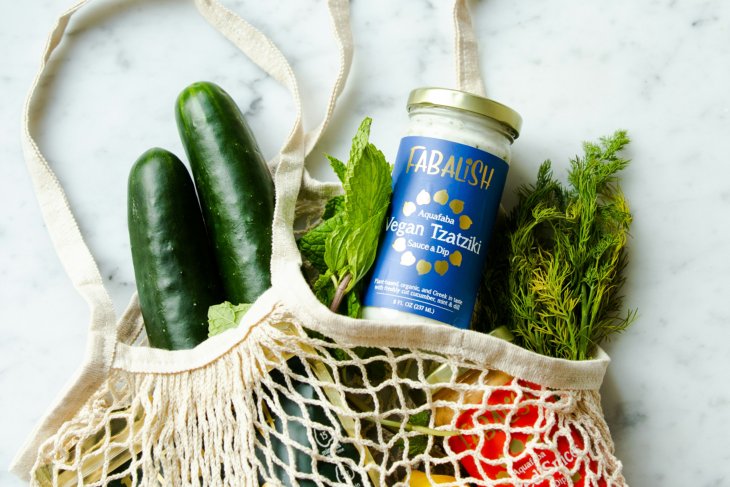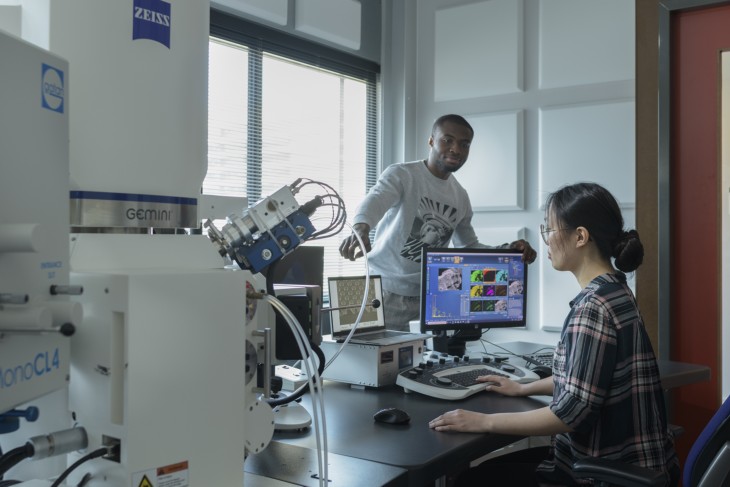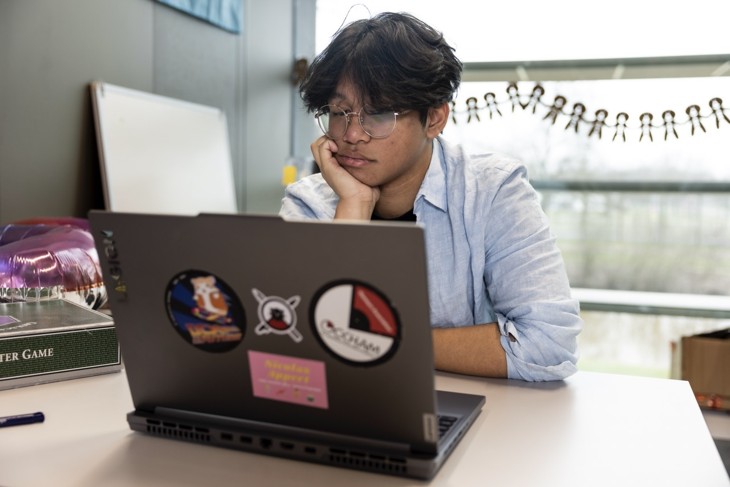1. Choose reusable products
Investing in reusable products is perhaps the easiest way to live a more sustainable life. By carrying a mug and water bottle with you, you can save dozens of disposable cups and plastic bottles every year. Replace your plastic lunch bags with a lunchbox, too, and use dishcloths instead of kitchen roll to clean your kitchen. And, while you're at it, make sure you bring your own bag to the supermarket or into the city centre, so you don't have to keep buying plastic bags at the checkout.
2. Separate your waste
In Enschede, separating waste is made pretty easy with four different waste streams: organic waste, residual waste, paper and packaging. So, make use of it! Separating waste only takes a small effort on your part, but it makes a huge difference: by properly separating waste, it is easier to process, and most of it can be recycled. Plus, you'll even save money, since you only pay for residual waste! Used frying oil from your late-night snacks and batteries can often be disposed of in special bins at the supermarket. You can get rid of larger electronic devices on campus at Carré.
3. Try eating vegetarian
Another tip is to try going meat-free more often. Plants use less water, land and energy, and emit less CO2 and other greenhouse gases. Even just one meat-free day a week can make a big difference! You will see that vegetarian or vegan cooking does not have to be complicated at all. Cook a delicious curry, pasta or tray bake, for example, or simply replace the meat in a recipe with a proper meat substitute.
4. Visit the local market
On Tuesdays and Saturdays between 8 a.m. and 5 p.m., you can stroll through the market on H.J. van Heekplein. From March to December, this market is also open on Sundays between 12 p.m. and 5 p.m. Here you can buy vegetables, fruit, fish and cheese from local farms and businesses. Because the products come from nearby, there’s far less transport involved, reducing CO2 emissions. Besides, everything is super fresh. Your purchases at the market are also often a lot cheaper than in the supermarket: a win-win situation!
5. Shop second-hand
Why buy everything new when you can buy many items, such as clothing, furniture and (study) books, second-hand? Shopping second-hand is not only cheaper, but also much more sustainable: it prevents items from being thrown away unnecessarily and saves resources. And let’s be honest: hunting for hidden gems in second-hand shops is also just a lot of fun. Prefer shopping from home? Then take a look at Marktplaats, Vinted and Facebook Marketplace, or organise a clothing swap with friends. And if you do buy new clothes, go for high-quality items that will last a long time.
6. Save energy
Although you may not be able to improve the insulation of your student room, there are plenty of other things you can do as a student. Switch off the lights and heating when you’re not at home, and try turning down the heat a little in winter. LED bulbs consume a lot less electricity, and unplugging devices and chargers when you’re not using them also helps avoid unnecessary energy consumption. Also, try putting your laptop or tablet in energy-saving mode for smaller tasks, like taking notes. Finally, digital data storage also consumes a lot of energy, so that's a good reason to finally clean up those old emails and photos ;).
7. Prevent water waste
You can also reduce your water consumption without too much effort. For example, take shorter showers and only turn on the washing machine when you have a full load to wash. Moreover, turn off the tap while brushing your teeth and don't wash your dishes under running water, but use a washing-up bowl instead. And that annoying dripping tap or toilet that keeps running? Report it to your landlord!
8. Choose sustainable study materials
You can also make sustainable choices while studying. For example, take your notes digitally: this saves a lot of paper, and you will never lose your notes again! Also, ask yourself whether it is really necessary to print that one summary, or whether reading it on your laptop will do. If you do decide to print something, print double-sided. Moreover, buy study materials made from recycled materials and choose refillable pens instead of disposable plastic ones.
9. Prevent food waste
Finally, only buy what you actually plan to eat. Make a meal plan at the beginning of the week, so you don't end up with mouldy cheese or wilted lettuce that you have to throw away. Leftovers can easily be frozen, and by cooking with housemates or friends, you can more easily use up all the ingredients you have around. Also, don’t forget to check out the Too Good To Go app, where you can save leftover food from shops and restaurants from the bin for a small price: good for both your student budget and the environment!




